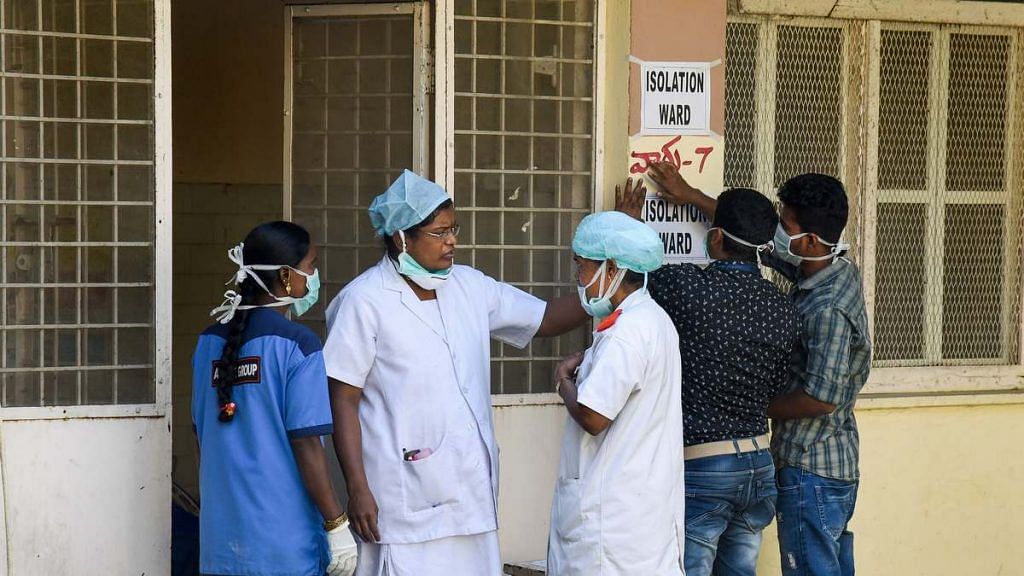New Delhi: The critics of globalisation say the rise of nationalism and protectionism will spell the end of globalisation and that the world is decoupling. But coronavirus has risen and has brought with it a wake-up call — not only is globalisation not dead, it is striking back by giving humanity the first truly globalised epidemic.
For centuries, diseases have travelled across borders, but never at this pace and with such a spread. It has been only a few weeks since the first case was reported in Wuhan, China, and already 66 countries have been affected — 10 of which reported deaths.
Globalisation strikes back
The government of China closed down Wuhan, with the hope that it would not spread. But a large number of people from all over the world are travelling in and out of China.
The Italians are tourists in China, and they picked it up. Italy is itself a tourist and business hub, and people going in and out of Italy would have spread the virus further. The man in Delhi who tested positive for coronavirus Monday had travelled to Italy.
Low development countries like Iran have also picked it up. This illustrates that everything is interlinked — from mobile phones to medication. Raw materials are collected in one place, manufactured in another, and sold elsewhere.
Global trade plays an even more important role in our lives from 10 years ago, when the financial crisis struck. The refrain among liberals was that globalisation was a bad thing, and opposition to globalisation became a famous liberal cause.
Also read: Hit by coronavirus crisis, NITI Aayog plans Rs 3,000-cr scheme to boost bulk drugs industry
Need a globalised response
The World Health Organization (WHO) has come out to say that those who are 60 years and older are at more risk, especially if they have underlying health conditions such as diabetes, respiratory problems and cardiovascular diseases.
The spread of this virus has made it clear that to tackle it. We need a globalised response — every country now has to work together in terms of treatment, research and monitoring.
Saumya Swaminathan, Deputy Director General of Programmes at the WHO, has said countries have obligations to work together to find a cure.
In the late 60s, environmental analyst Lester Brown had said the world’s problems traverse borders and must be responded to in a globalised manner.
What the WHO data says
The WHO data says overall deaths among people affected by the virus is 1.4 per cent. Of these, 81 per cent are people above 60 years of age.
When it comes to children and teenagers, the fatality rate is 0.1 per cent.
The data so far also suggests that women are more immune to the virus than men. It reasons that women could have something in their genetics that makes their immune system stronger to the virus, and that on average, men smoke more than women.
Watch the full episode here.
Also read: Hindu Mahasabha plans gaumutra party with cow-dung cakes to fight coronavirus in India
